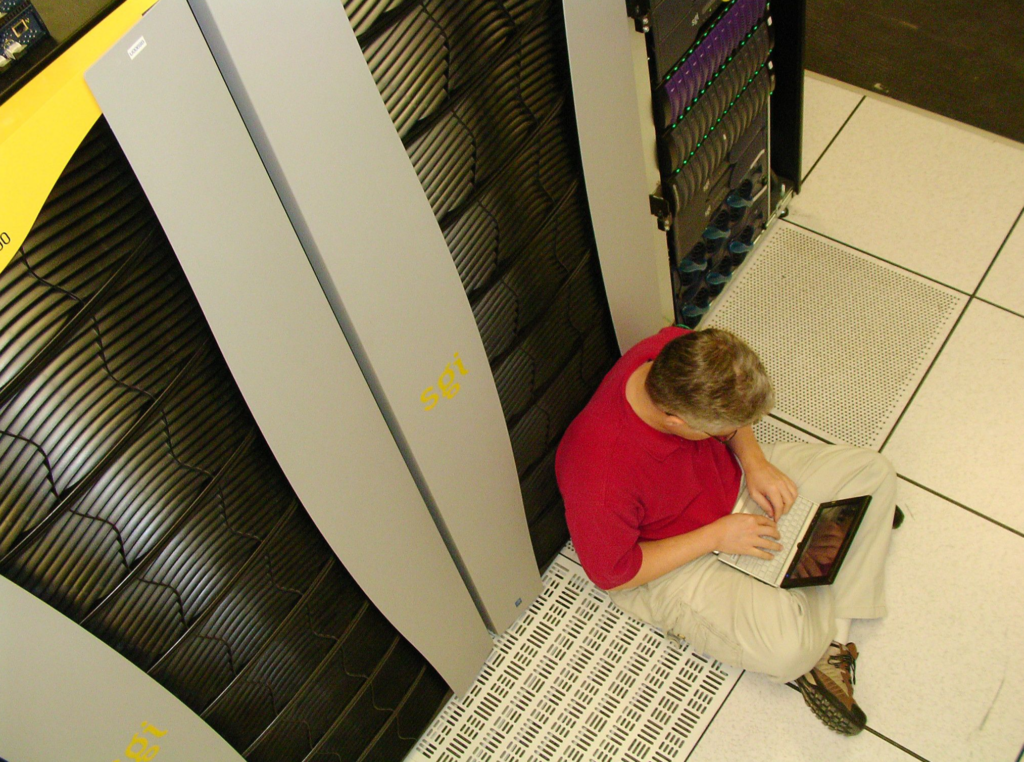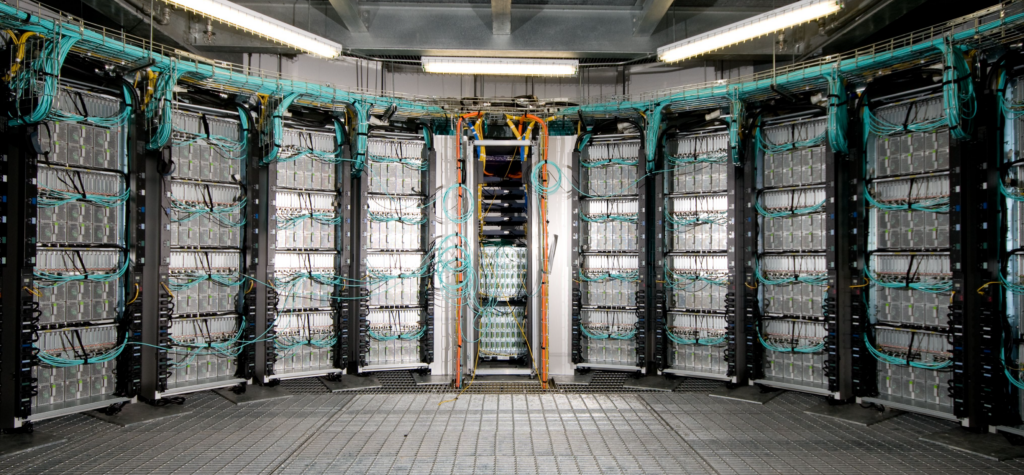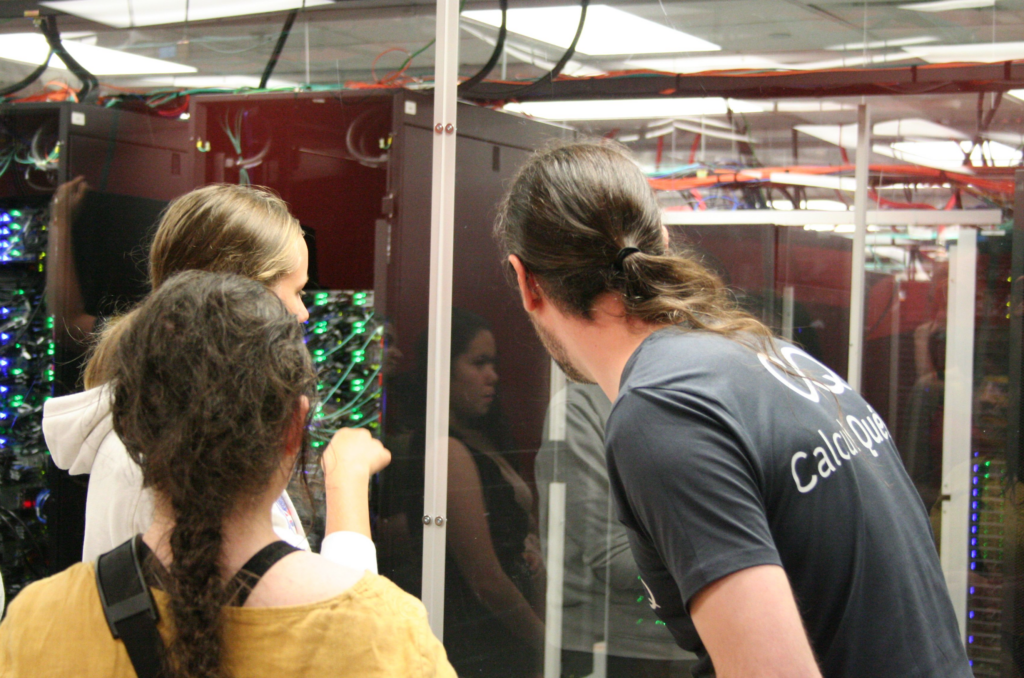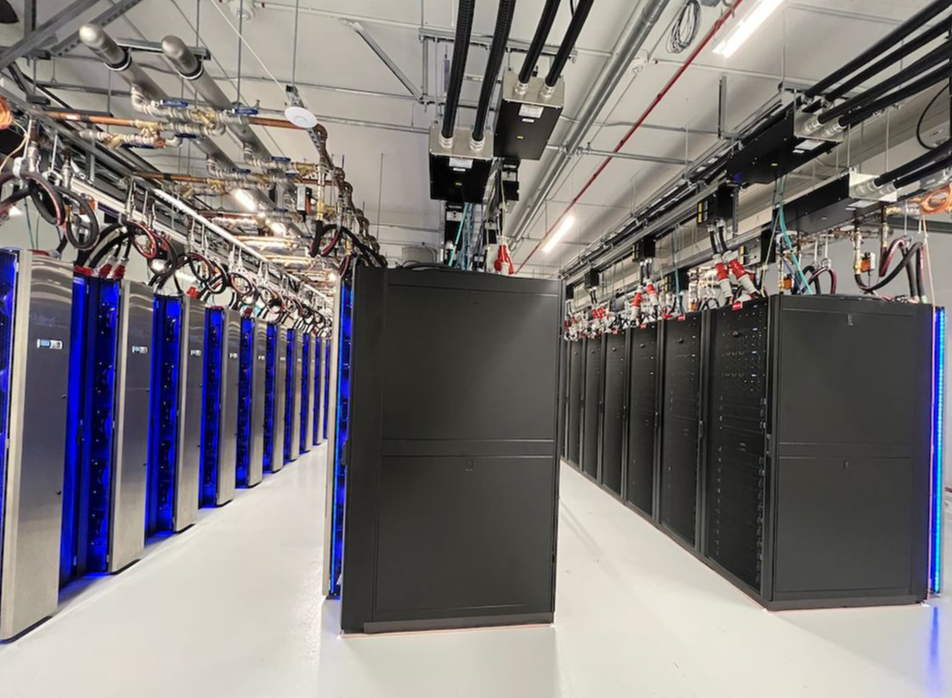United for more power
Québec is a pioneer in the field of advanced computing in the country. From 1992, several inter-institutional collaborations emerged. These collaborations made possible the acquisition of supercomputers, and the development of local expertise in order to support the research community.

Thirty years ago, this support enabled Québec researchers to rank high among the digital simulation-based research lists!
In 2011, the institutions consolidated their collaborations with the creation of Calcul Québec. Reflecting the research community computing needs, Calcul Québec’s offer and expertise have continued to grow and diversify! In 2020, Calcul Québec was incorporated and became a non-profit organization whose members are university institutions and research centres.
Calcul Québec today
The Calcul Québec team now counts more than 45 experts from around ten universities. This highly qualified professional team ensures that the entire research community remains competitive nationally and internationally by having access to quality digital research infrastructures, while having the necessary skills to use them.
We share our computing clusters—or supercomputers—with thousands of researchers, mainly in Québec, but also across Canada. They power research in physics, astronomy, genomics, health and even some more surprising fields such as music and literature.
Conditions that foster innovation
Calcul Québec offers access to an independent infrastructure, hosted in Québec, that ensures the cultivation of expertise for the economic development of the province and country. Our services also promote results sharing.

2003
The Altix 3700, a shared-memory computer, facilitates parallel computations on large-scale problems.
With its 872 servers, Mammouth-série was one of the country’s first compute clusters.

2009
Colossus is a data center housed in an old Van der Graaff generator. The building’s cylindrical shape gives it a unique look that sets it apart from other compute clusters.

2011
At its inauguration, Guillimin ranked as the 55th fastest supercomputer in the world! A timely addition for the research community, whose needs continued to grow.














